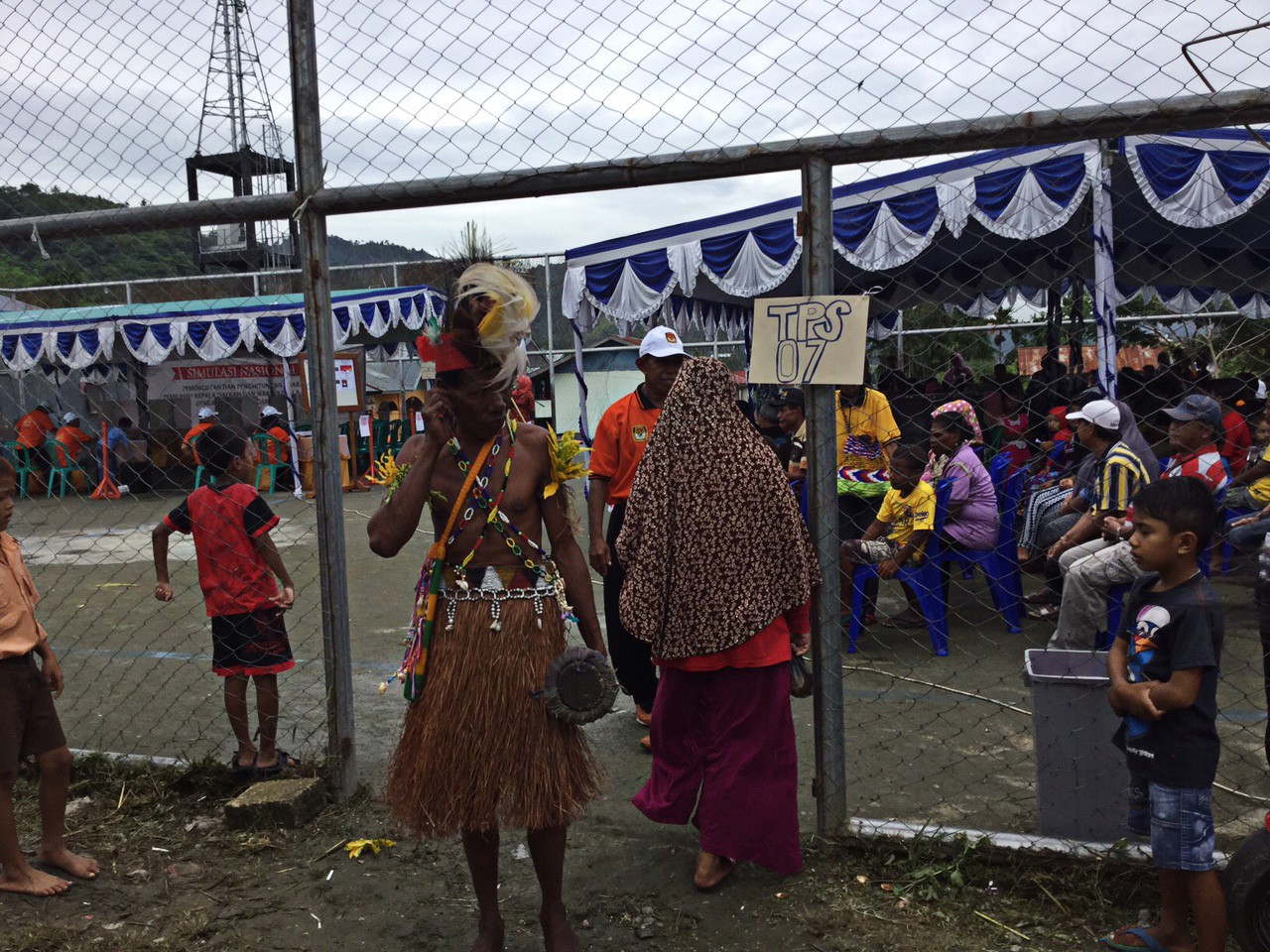Popular Reads
Top Results
Can't find what you're looking for?
View all search resultsPopular Reads
Top Results
Can't find what you're looking for?
View all search resultsPapua residents preserve ‘noken’ system
While voters across the archipelago went to polling stations to cast their votes in the simultaneous regional elections on Wednesday, it was a different scene in Dogiyai regency, Papua.
Change text size
Gift Premium Articles
to Anyone
While voters across the archipelago went to polling stations to cast their votes in the simultaneous regional elections on Wednesday, it was a different scene in Dogiyai regency, Papua.
Polling stations (TPS) set up in some areas appeared empty. No residents were spotted queuing at TPS, and only a few officials were seen.
Such a situation occurred as residents had already exercised their right to vote under the noken mechanism. In the noken system, residents conduct musyawarah, bringing everybody together to make decisions by consensus. Individual voters do not go to TPS to vote. Instead, tribal leaders visit the TPS to lodge votes to represent every member of their respective communities.
“Every candidate was given a certain portion because each of them is the best representative from their region,” said Dinan Anou, head of Dikiyouwa village in Kamu district.
“[On election day] residents worked as usual. There were only some officials at the village center to count the votes,” Dinan continued, adding that giving votes to each candidate was important to maintain harmony and peace in the village.
Four tickets ran for this year’s Dogiyai regental election, namely Yacubos Dumapa-Oskar Makai, Anton Yowau-Yanuaris Tigi, Fransesco Tebay-Benediktus Kotouki and Markus WayneAngki Goo. In total, there were 129,907 voters across 292 TPS in 79 villages or 10 districts.
In Dikiyouwa, the biggest portion was given to the TebayKotouki ticket with 1,039 votes, followed by Dumupa-Makai with 350 votes, Wayne-Goo with 196 votes and Yowau-Tigi with 100 votes.
“Pak Tebay received the most votes because he’s a point of pride for Kamu district. Other candidate pairs are neighbors so we gave them votes too. We did not forget our neighbors,” said Dinan Anou.
The Tebay-Makai ticket similarly earned the most votes in Kimipugi village, also in Kamu, garnering 2,800 votes because Tebay was considered a point of pride for the district.
Voting through the noken system was held two to three days before election day set by the government on Feb. 15. As every resident “voted” during musyawarah, they did not have to visit TPS.
At around 6 a.m. officials from the TPS in Dikiyouwa were already at the village center, waiting for village heads to report their decisions. The officials later marked ballot papers based on residents’ decisions. Witnesses from each candidate’s campaign team also attended the recapitulation.
None of the ink usually used to mark voters’ fingers after voting was required. The ballots were later delivered to the Kamu Elections Committee (PPD), accompanied by villagers.
“We have done this for a long time. The [election] officials already knew what they had to do. Residents have already made their decisions,” said Dinan.
Dogiyai General Elections Commission (KPU Dogiyai) head Moses Magai said many villagers were in fact reluctant to go to TPS to perforate ballots as they were afraid of making mistakes, while others could not read.
“Many elderly people can not read or see well so they are afraid of mistakenly perforating the wrong candidates’ pictures. This might lead to a problem,” said Moses.
On election day, no security issues were reported in Dogiyai during voting hours, despite the area being considered prone to conflict.
Papua Elections Supervisory Agency (Bawaslu) coordinator Yacob Paisei said that although it differed from a one-man-onevote system as it was carried out through musyawarah, the noken mechanism still had democratic value as musyawarah was part of the country’s democracy.
“It would take an intensive campaign to encourage residents to do a one-man-one-vote system at polling stations because it would be hard for them to move away from their traditions,” Yacob said.
However, the noken system may be put aside if too many candidates run in an election as that could make it hard for villagers to reach a decision, said Dogiyai Customary Institution secretary Alexander Koga.










